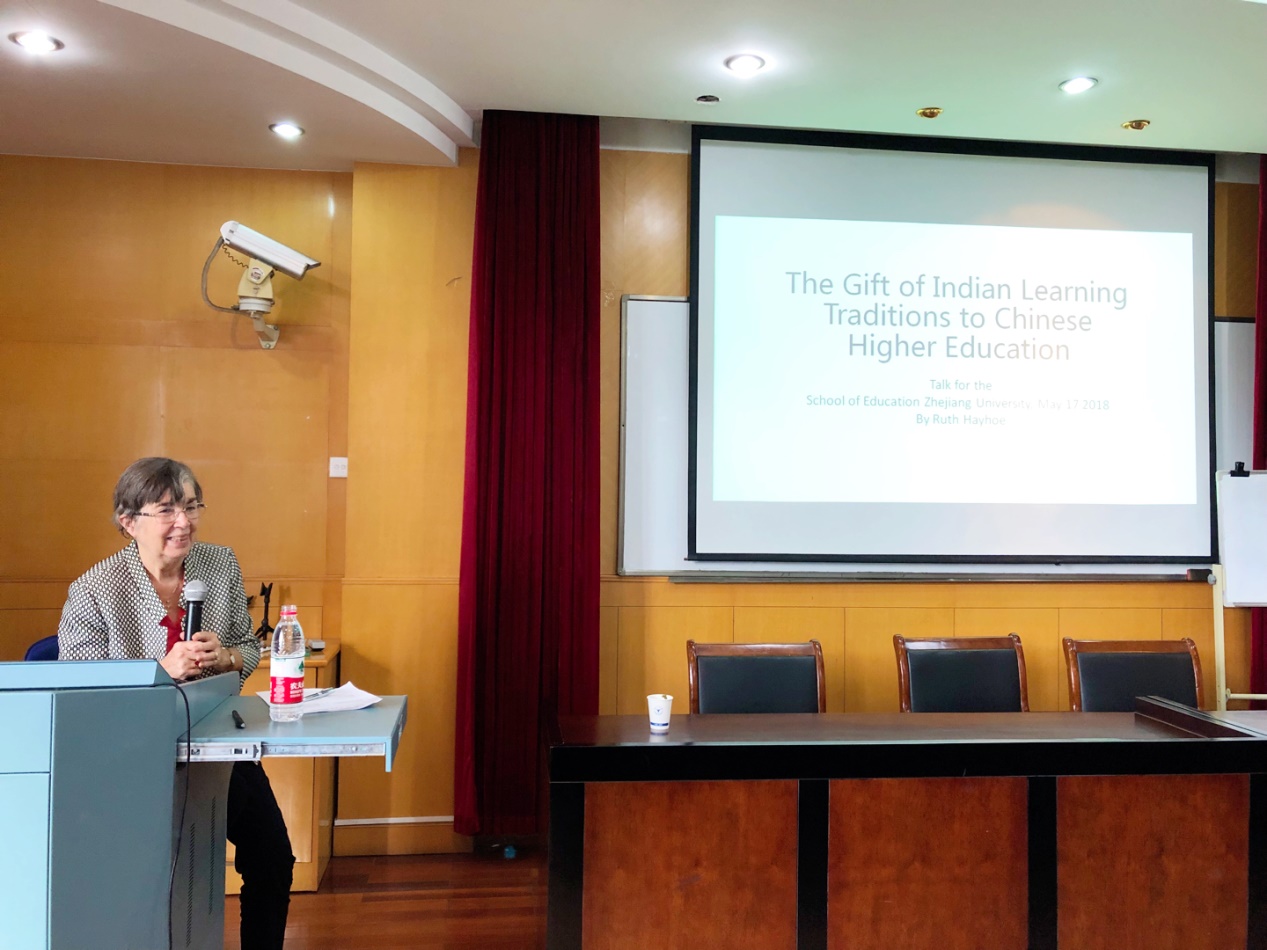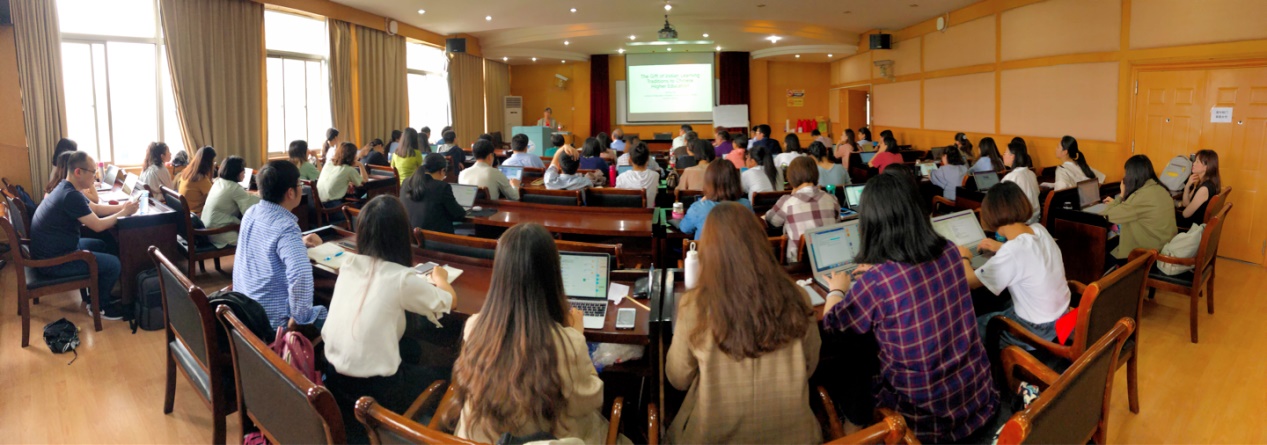
Date: 2019-06-12 Visitcount: 119
On the afternoon of May 17th, the 60th lecture of the Education Forum was successfully held in the Tian Jiabing 520 lecture hall. Professor Ruth Hayhoe presented The Gift of Indian Learning Tradition to Chinese Higher Education for the teachers and students from College of Education. The lecture was hosted by Tian Zhengping, senior professor of liberal arts at Zhejiang University. Professor Gu Jianmin, Dean of College of Education, Professor Wu Xueping, Professor of Discipline of Education, Professor Shang Lihao and other students from various departments participated the lecture.

Before the lecture, Professor Tian Zhengping introduced the world-renowned educator to the audience. He listed the main academic achievements of Professor Ruth Hayhoe and gave his appreciation for her support for the College of Education of Zhejiang university. Professor Ruth Hayhoe has achieved outstanding results in the fields of comparative education, higher education, and education in China, where she has gained a worldwide reputation. Professor Tian Zhengping said that educational researchers can not only obtain the enlightenment of methodology, research horizon and subject education from her academic works, but also profoundly feel herChinese complex.
At the the lecture, Professor Ruth Hayhoe shared her new study on Indian Buddhist monastic colleges. Subsequently, she explained four themes as follows: The Origin of Indian Buddhist Temple University, The Influence of Indian Buddhist Temple University on Shuyuan, The Contribution of Mahayana Buddhism to Women's Participation in Academics and The Influence of Shuyuan on Modern Chinese Universities.
Professor Ruth Hayhoe firstly introduced two important Indian Buddhist temple universities. The first Indian Buddhist monastery university was Taxila, built in Gandhara (now in Pakistan) in the 7th century BC, which she considers as the world's first university. This Buddhist monastery university attracts influential scholars from all over India, which becomes a dynamic informal learning center.The second Buddhist monastery university was Nalanda, established in 427 AD in northeastern India. This is a highly organized institution with halls, classrooms and libraries. Compared with Taxila, Nalanda has generated greater international influence and attracted students from Korea, Japan, Indonesia, Turkey, China and other countries, with as many as 10,000 students.
Professor Ruth Hayhoe believes that the ancient Indian Buddhist monasteries had a certain influence on the organization and planning of the ancient Chinese academies. At the same time, the ancient Chinese academies played a balancing role in China's imperial examination system. Because it emphasized the importance of moral education and social responsibility, so it became the source of the new thinking of bureaucratic organizations. In order to interpret the influence of Mahayana Buddhism on women's education, Professor Ruth Hayhoe used several Buddhist landmark events to trace how women gradually gained the participation in the evolution of academic opportunities under the influence of Mahayana Buddhism.
Later, Professor Ruth Hayhoe discussed the influence of Shuyuan on modern Chinese universities from the perspective of epistemology. She agreed with the idea that early modern Chinese scholars of Chinese universities were deeply influenced by the spirit of Shuyuan. At the end of the lecture, she pointed out thatit is high time for China to acknowledge the legacy of Indian monastic communities, Mahayana Buddhism and the shuyuan, and explain these to world dominated by a Western concept of university.

During the lectures and exchanges, teachers and students of College of Education exchanged views with Professor Ruth Hayhoe on how Chinese universities’ solution of getting out of the path of Westernization and Indian Buddhist monasteries influence on Shuyuan . In this lecture, Professor Ruth Hayhoe illustrated her latest research and findings and rich historical materials of Indian Buddhist monastic colleges in fluent Chinese. The audiences were moved by her lasting enthusiasm for academic and her concern for Chinese education.
Edited by Wang Wenna
Photo by Chai Zhongli
May 20,2019

